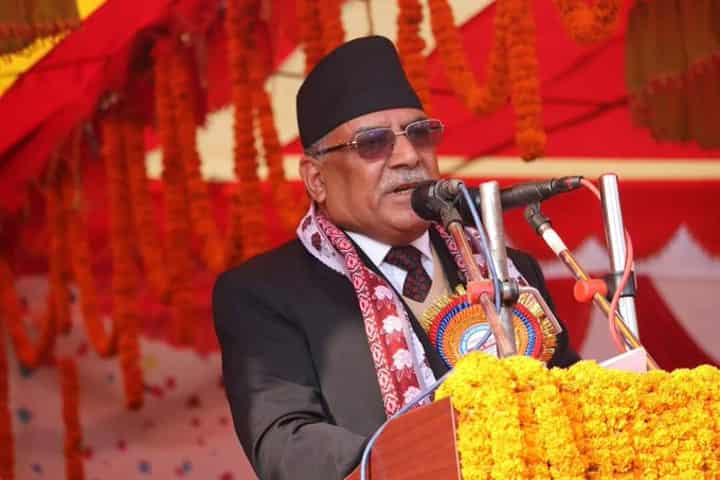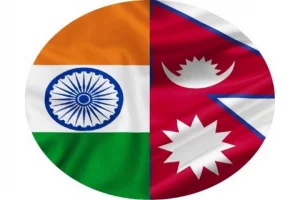KATHMANDU: Nepal’s Supreme Court has ordered the court administration to register two writ petitions against Prime Minister Pushpa Kamal Dahal aka Prachanda, also the Maoist party chief, for declaring that he would take the responsibility of 5000 of the total 17,000 deaths during the country’s armed conflict (1996-2006).
Responding to a case filed by 20 individuals mostly victims of the conflict era, a division bench of the Supreme Court Justices Ishwor Prasad Khatiwada and Hari Prasad Phuyal on Friday ordered the court administration to register the petitions filed against Prachanda.
On 15 January 2020, present Prime Minister Pushpa Kamal Dahal declared that he would take responsibility of 5000 of the 17,000 deaths of the conflict years. Today Supreme Court bench directed court administration to register case against him, which it had earlier refused to do. pic.twitter.com/3tyOlyIMv4
— Kanak Mani Dixit (@KanakManiDixit) March 3, 2023
In their case, the petitioners had sought legal action agaist Maoist Chief Prachanda. They demanded that Prachanda should be arrested since he publicly declared to take the responsibility of 5000 of the total 17,000 killings during the insurgency period.
On January 2020, Prachanda, the former rebel leader, speaking at a public event in Kathmandu, had said that he was ready to bear the responsibility for around 5000 people who were killed during the armed conflict.
Earlier in November 2022, the Supreme Court administration had refused to register the two writ petitions against Prachanda on the ground that the matter was related to peace process and the Truth and Reconciliation Commission (TRC) was dealing with the war-time cases and the petitioners had already registered their cases at the TRC.
Bimal Poudel, a spokesperson for the top court, said that Friday’s ruling of the division bench of Supreme Court has annulled the previous decision of the court administration.
It means, now the Supreme Court needs to register and conduct hearing on war-time cases filed against Prachanda without any hesitancy.
According to constitutional experts, Friday’s Supreme Court order has paved way for filing case against Prime Minister Prachanda.
“With this, conflict victims can file war-era case against Prachanda. The court will conduct hearing in a due course,” Bipin Adhikari, a veteran constitutional expert in Kathmandu, told India Narrative on Saturday.
Prachanda spearheaded the bloody Maoist insurgency against the state since 1996 which witnessed the killings of around 17000 people.
“On 15 January 2020, present Prime Minister Pushpa Kamal Dahal declared that he would take responsibility of 5000 of the 17,000 deaths of the conflict years. Today Supreme Court bench directed court administration to register case against him, which it had earlier refused to do,” Kanak Mani Dixit, a human rights activist and senior journalist, tweeted following the Supreme Court order.
Meanwhile, Maoist party has indirectly objected to the order delivered by Supreme Court on Friday.
A Maoist party secretary said that the latest apex court order was disappointing. “Reactionary forces are now trying to sabotage the Maoist movement. The court’s decision is part of that ill-intention. We will not tolerate,” he told India Narrative.
The Maoist party is now leading a coalition government with the backing of an eight-party ruling alliance. Nepali Congress, largest party in parliament, is one of the key allies of Prime Minister Prachanda.
Nepal’s conflict ended in 2006 after the Maoist party signed a peace agreement. But Maoist leaders have tried to shrug off responsibility for crimes committed during the conflict era. National and international human rights bodies have long been calling for action against those involved in war-era crimes.
Two separate commissions Truth and Reconciliation Commission (TRC) and the Commission for Investigation on Enforced Disappeared Persons (CIEDP), which are also called transitional justice mechanisms, were established in February 2015 to look into grave human rights violations during the conflict and provide fair justice to the victims. However, these two commissions have been largely ineffective to do their job due to lack of proper political backing.
(Santosh Ghimire is India Narrative’s Nepal correspondent based in Kathmandu.)




















